- Clone
- MI15 (See other available formats)
- Regulatory Status
- RUO
- Workshop
- HCDM listed
- Other Names
- B-B4
- Isotype
- Mouse IgG1, κ
- Ave. Rating
- Submit a Review
- Product Citations
- publications
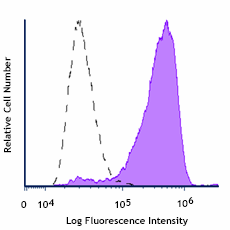
-

Human myeloma cell line U266 was stained with anti-human CD138 (Syndecan-1) (clone MI15) Spark Violet™ 500 (filled histogram) or mouse IgG1, κ Spark Violet™ 500 isotype control (open histogram).
| Cat # | Size | Price | Quantity Check Availability | Save | ||
|---|---|---|---|---|---|---|
| 356551 | 25 tests | 133€ | ||||
| 356552 | 100 tests | 295€ | ||||
CD138, a member of the syndecan protein family, is a type I integral membrane heparin sulfate proteoglycan also known as Syndecan-1. Syndecan-1 participates in cell proliferation, cell migration, and cell-matrix adhesion via interaction with collagen, fibronectin, and other soluble molecules (such as FGF-basic). It is expressed on normal and malignant human plasma cells, pre-B cells, epithelial cells, and endothelial cells, but not on mature circulating B-lymphocytes. It is also expressed on some non-hematopoietic cells, including embryonic mesenchymal cells, vascular smooth muscle cells, endothelial cells, and neural cells.
Product DetailsProduct Details
- Verified Reactivity
- Human
- Antibody Type
- Monoclonal
- Host Species
- Mouse
- Immunogen
- A mixture of U266 and XG-1 human myeloma cell lines.
- Formulation
- Phosphate-buffered solution, pH 7.2, containing 0.09% sodium azide and BSA (origin USA)
- Preparation
- The antibody was purified by affinity chromatography and conjugated with Spark Violet™ 500 under optimal conditions.
- Concentration
- Lot-specific (to obtain lot-specific concentration and expiration, please enter the lot number in our Certificate of Analysis online tool.)
- Storage & Handling
- The antibody solution should be stored undiluted between 2°C and 8°C, and protected from prolonged exposure to light. Do not freeze.
- Application
-
FC - Quality tested
- Recommended Usage
-
Each lot of this antibody is quality control tested by immunofluorescent staining with flow cytometric analysis. For flow cytometric staining, the suggested use of this reagent is 5 µL per million cells in 100 µL staining volume or 5 µL per 100 µL of whole blood. It is recommended that the reagent be titrated for optimal performance for each application.
* Spark Violet™ 500 has a maximum excitation of 393 nm and a maximum emission of 500 nm. - Excitation Laser
-
Violet Laser (405 nm)
- Application Notes
-
The epitope recognized by MI15 is found within the ectodomain of the CD138 core protein. It has been reported that MI15 blocks the binding of clone B-B4 but not clone DL-101 by flow cytometric analysis. Clones DL-101 and MI15 exhibit differential staining patterns on in vitro generated plasma cells and some CD138+ cell lines.4
Additional reported applications for the relevant formats include: immunofluorescent staining1, Western blotting2, immunohistochemical staining of formalin-fixed paraffin-embedded frozen tissue sections3, and spatial biology (IBEX)5,6. -
Application References
(PubMed link indicates BioLegend citation) -
- Costes V, et al. 1999. Hum. Pathol. 30:1405. (IF)
- Gattei V, et al. 1999. Br. J. Haematol. 104:152. (WB)
- Bologna-Molina R, et al. 2008. Oral Oncol. 44:805. (IHC)
- Itoua MR, et al. 2014. Biomed. Res. Int. 2014:536482.
- Radtke AJ, et al. 2020. Proc Natl Acad Sci USA. 117:33455-33465. (SB) PubMed
- Radtke AJ, et al. 2022. Nat Protoc. 17:378-401. (SB) PubMed
- RRID
-
AB_2936694 (BioLegend Cat. No. 356551)
AB_2936694 (BioLegend Cat. No. 356552)
Antigen Details
- Structure
- 100-200 kD type I integral transmembrane glycoprotein
- Distribution
-
Plasma cells, pre-B cells, epithelial cells, endothelial cells
- Function
- Adhesion, controls cell morphology, regulates cell growth
- Ligand/Receptor
- FGFb, collagen, fibronectin
- Cell Type
- B cells, Endothelial cells, Epithelial cells, Plasma cells
- Biology Area
- Cell Adhesion, Cell Biology, Cell Motility/Cytoskeleton/Structure, Immunology, Neuroscience, Synaptic Biology
- Molecular Family
- Adhesion Molecules, CD Molecules
- Antigen References
-
1. Sanderson RD, et al. 1992. Cell. Regul. 1:27.
2. Zola H, et al. 2007. Leukocyte and Stromal Cell Molecules: The CD Markers. Wiley-Liss A John Wiley & Sons Inc, Publication. - Gene ID
- 6382 View all products for this Gene ID
- UniProt
- View information about CD138 on UniProt.org
Related FAQs
Other Formats
View All CD138 Reagents Request Custom ConjugationCompare Data Across All Formats
This data display is provided for general comparisons between formats.
Your actual data may vary due to variations in samples, target cells, instruments and their settings, staining conditions, and other factors.
If you need assistance with selecting the best format contact our expert technical support team.
-
PE anti-human CD138 (Syndecan-1)
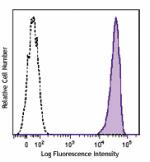
Human myeloma cell line U266 was stained with CD138 (clone M... 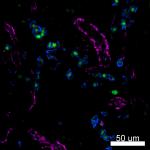
Confocal image of human lymph node sample acquired using the... 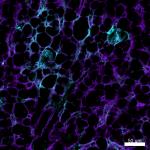
Confocal image of human liver sample acquired using the IBEX... 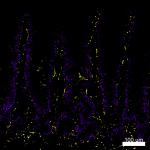
Confocal image of human jejunum sample acquired using the IB... -
Purified anti-human CD138 (Syndecan-1)
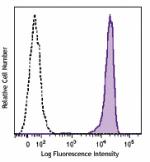
Human myeloma cell line U266 was stained with purified CD138... 
SeqIF™ (sequential immunofluorescence) staining on COMET™ of... -
APC anti-human CD138 (Syndecan-1)
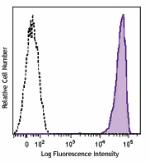
Human myeloma cell line U266 was stained with CD138 (clone M... -
FITC anti-human CD138 (Syndecan-1)
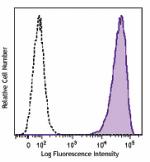
Human myeloma cell line U266 was stained with CD138 (clone M... -
PerCP/Cyanine5.5 anti-human CD138 (Syndecan-1)
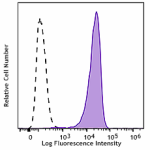
Human myeloma cell line U266 was stained with CD138 (Syndeca... -
Alexa Fluor® 700 anti-human CD138 (Syndecan-1)
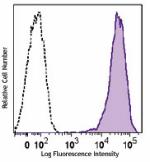
Human myeloma cell line U266 was stained with CD138 (clone M... -
PE/Cyanine7 anti-human CD138 (Syndecan-1)
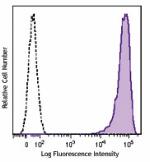
Human myeloma cell line U266 was stained with CD138 (clone M... -
Brilliant Violet 421™ anti-human CD138 (Syndecan-1)
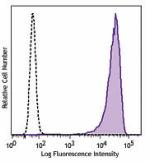
Human myeloma cell line U266 was stained with CD138 (clone M... -
Brilliant Violet 510™ anti-human CD138 (Syndecan-1)
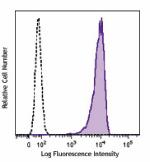
Human myeloma cell line U266 was stained with CD138 (clone M... -
Brilliant Violet 605™ anti-human CD138 (Syndecan-1)
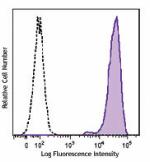
Human myeloma cell line U266 was stained with CD138 (clone M... -
Brilliant Violet 711™ anti-human CD138 (Syndecan-1)
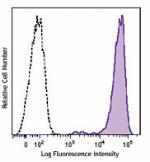
Human myeloma cell line U266 was stained with CD138 (clone M... -
Alexa Fluor® 647 anti-human CD138 (Syndecan-1)
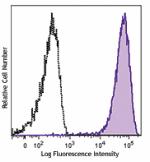
Human myeloma cell line U266 was stained with CD138 (clone M... 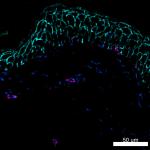
Confocal image of human skin sample acquired using the IBEX ... 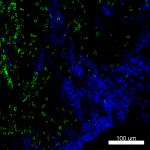
Confocal image of human metastatic lymph node sample acquire... -
Alexa Fluor® 594 anti-human CD138 (Syndecan-1)
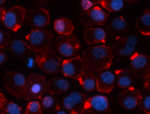
U266B1 cells were fixed with 2% paraformaldehyde (PFA) for t... -
PE/Dazzle™ 594 anti-human CD138 (Syndecan-1)
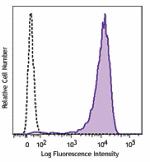
Human myeloma cell line U266 was stained with CD138 (clone M... -
APC/Cyanine7 anti-human CD138 (Syndecan-1)
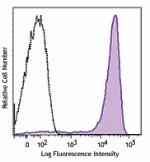
Human myeloma cell line U266 was stained with CD138 (clone M... -
Pacific Blue™ anti-human CD138 (Syndecan-1)
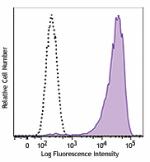
Human myeloma cell line U266 was stained with Pacific Blue™ ... -
TotalSeq™-A0055 anti-human CD138 (Syndecan-1)
-
Brilliant Violet 785™ anti-human CD138 (Syndecan-1)
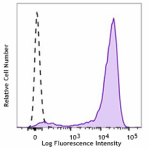
Human myeloma cell line U266 was stained with CD138 (clone M... -
Biotin anti-human CD138 (Syndecan-1)
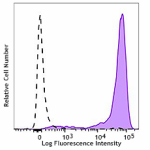
Human myeloma cell line U266 was stained with CD138 (Syndeca... -
TotalSeq™-C0055 anti-human CD138 (Syndecan-1)
-
APC/Fire™ 750 anti-human CD138 (Syndecan-1)
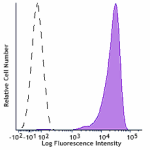
Human myeloma cell line U266 was stained with CD138 (Syndeca... -
TotalSeq™-B0055 anti-human CD138 (Syndecan-1)
-
PE/Cyanine5 anti-human CD138 (Syndecan-1)
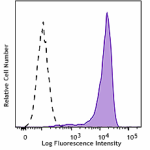
U266 (human myeloma cell line) cells were stained with anti-... -
TotalSeq™-D0055 anti-human CD138 (Syndecan-1)
-
PE/Fire™ 640 anti-human CD138 (Syndecan-1)
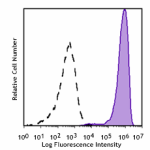
U266 cells were stained with anti-human CD138 (Syndecan-1) (... -
Spark Violet™ 500 anti-human CD138 (Syndecan-1)
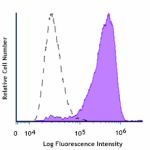
Human myeloma cell line U266 was stained with anti-human CD1... -
FITC anti-human CD138
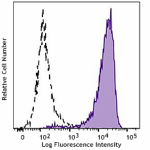
Typical results from human myeloma cell line U266 stained ei... -
PE/Fire™ 700 anti-human CD138 (Syndecan-1)
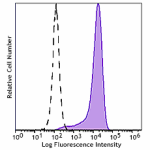
U266 cells were stained with anti-human CD138 (Syndecan-1) (... -
Spark Violet™ 423 anti-human CD138 (Syndecan-1)
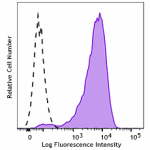
Human myeloma cell line U266 was stained with anti-human CD1... -
Spark Red™ 718 anti-human CD138 (Syndecan-1) (Flexi-Fluor™)
-
GMP FITC anti-human CD138 (Syndecan-1)

Typical results from human myeloma cell line U266 stained ei... -
Brilliant Violet 650™ anti-human CD138 (Syndecan-1)

Human myeloma cell line U266 was stained with anti-human CD1... -
Spark Violet™ 538 anti-human CD138

Human myeloma cell line U266 was stained with anti-human CD1... -
APC anti-human CD138

Typical results from human myeloma cell line U266 stained ei... -
Spark Blue™ 550 anti-human CD138 (Syndecan-1) (Flexi-Fluor™)
-
Spark Blue™ 574 anti-human CD138 (Syndecan-1) (Flexi-Fluor™)
 Login / Register
Login / Register 













Follow Us